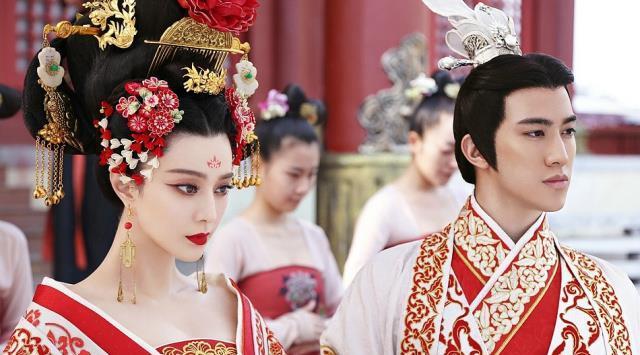The term "feudal" in ancient times had the meaning of "feudal statehood and state-building" in the pre-Qin period, because the political system adopted by the slave society at that time was "sub-feudal system", that is, the princes and nobles or meritorious servants were divided into princes, given a certain amount of land and population, and then let them have the ability to defend the royal family. These princes are relatively independent kings on their land, and the land they rule constitutes a small country.
In 221 BC, Yingzheng established the Qin Dynasty, which has since opened the prelude to China's more than two thousand years of feudal dynasties, and the feudalism at this time represents a state system, and its equivalent is the slavery it replaces.

In 1949, after the founding of New China, the term feudalism was already a representative of backward ideas, especially in 1978, since the reform and opening up, a large number of new wave ideas from abroad have poured in, and the traditional ideas of the Chinese have been greatly impacted.
Since entering the 21st century, the words "feudal" and "backward" have been completely equated, and now when we say that a person's thinking is pedantic, backward, and not open, we will call it "feudal", which to a certain extent also reflects the closed and conservative thinking of people in the feudal era.
So, in China's more than two thousand years of feudal history, all dynasties were very closed and conservative?
In fact, the meaning of "feudalism" that we think of today is only influenced by the Ming and Qing dynasties. During the Ming Dynasty, after the chaotic rule of the Yuan Dynasty, the Han people returned to power and urgently needed an official ruling ideology, with the emergence of Zhu Xi and others, "Cheng Zhu Lixue" gradually occupied the main position of social thought at that time, and the "Three Principles and Five Constants" and "Survival of Heavenly Reason, Annihilation of Human Desire" propagated by this doctrine greatly promoted the development of the introverted nature of traditional Chinese culture, and the Chinese began to become conservative and closed.
In the Qing Dynasty, the Manchu Rulers became even more intense, especially in the Qianlong Dynasty, daxing literary prison, unified thinking, officials saw the emperor, children saw their parents, they had to kneel and pray, the whole society, the servility of the idea is very serious.
The Ming and Qing dynasties, the last two dynasties of the feudal era, are the closest to modern society, and we naturally identify the social trends of thought at that time as the ideological trends of the entire era, which is actually biased.
Before the Ming Dynasty, Chinese society was relatively open in thought. To give a few simple examples, we can understand that Liu Bang, the founding emperor of the Han Dynasty, his favorite concubine was called Lady Qi, Lady Qi was a widow, a widow can become a concubine of the king of a country, and she was also deeply loved by him, which is enough to see that the Han Dynasty people at that time were not "feudal".
We often say that there are two most powerful dynasties in China, namely the Han Dynasty and the Tang Dynasty. In fact, in terms of culture, these two dynasties were able to prosper because of their non-"feudal" social trends.
In the Tang Dynasty, there were no three principles and five constants to restrain people, just experienced a hundred years of great national integration of the Land of China, the situation of the whole society will be more active, and the Tang Emperor Li Shimin is an extremely enlightened person, chang'an at that time, can be said to be the world's earliest study abroad, many foreigners have come here to learn Chinese culture.
The women of the Tang Dynasty were very open, which can be seen from their dress. Because the Tang Dynasty was influenced by the Hu culture, they mainly paid attention to comfort in their clothes, following three major points, namely "thin, transparent, and dewy", which is why when we watch the Tang Dynasty court dramas today, we will find that the palace women at that time were very sexy in dress.
This is not to say that women in the Tang Dynasty were more casual, but the social trend at that time was like this, and their views on the relationship between the sexes, in fact, compared with modern times, are still a little more, and it is far from being like the Ming and Qing dynasties, women do not dare to go out of the boudoir. All in all, the women of the entire Tang Dynasty society were still relatively open.
For example, Li Shimin, who gained power through the Xuanwumen Rebellion, then ascended the throne, and after killing his own brother, he even disregarded the eyes of others to include his wife in his harem. Another example is Wu Zetian, she was originally a palace maid of Li Shimin, after Li Shimin's death, his son Li Zhiyou took a fancy to this father's palace daughter and took her as his wife, in modern parlance, that is, Xiao Ma became a wife. From these two examples, it is enough to see how open the society was at that time.
In the era of Wu Zetian, the status of women in the Tang Dynasty reached its peak, which was unimaginable in the patriarchal society at that time, and the equality between men and women also brought social activity, and the Sifangyi people were very willing to come to the Tang Dynasty to live, where the profound cultural atmosphere, the atmosphere of the big country, and the inclusive cultural characteristics attracted many people to come.